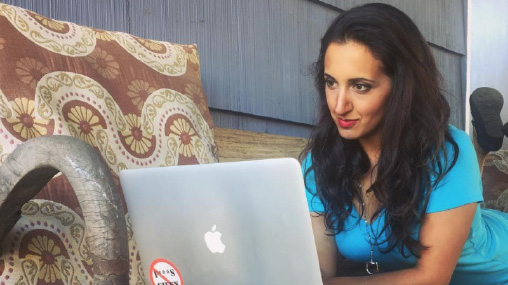An anonymous caller was raised to work hard, live below his means, and save. He feels undeserving of his recent $1,000,000 inheritance and struggles to spend it. What should he do?
Jack bought a house with a seven-year adjustable-rate mortgage. He’s confused about when and how he should refinance out of it. What should he do?
Jack is also wondering how to do the breakeven calculation between contributing to a Traditional IRA with upfront income tax savings versus a Roth IRA with deferred savings on investment gains.
Former financial planner Joe Saul-Sehy and I tackle these three questions in today’s episode.
Enjoy!
P.S. Got a question? Leave it here.
_______
Anonymous asks (at 5:03 minutes): My financial life has completely changed after a $1,000,000 inheritance but I feel stuck and afraid to spend any of it. What can I do to finally feel safe about using this money?
I’m 32 and I make $80,000 a year as an accountant. I’m single and rent an apartment where I can easily afford my fixed costs with my salary. I have a paid-off old car, no credit card debt, and, no student loans.
My grandfather, who passed away in 2012, had set up a trust for me that I gained control of two years ago when I turned 30. The account is worth $1,000,000, mostly invested in mutual funds and single stocks.
I’ve been raised to live below my means, work, and save, save, save. I feel strange that I’m suddenly more wealthy than my close friends, with money that feels unearned. So I operate as if the account isn’t there.
I became a money nerd before I came into this trust. I have $100,000 of earned income invested in my 401k, HSA, Roth IRA, and a taxable brokerage account. I max out my Roth IRA and HSA and get up to 15 percent in my 401k with my employer match.
I don’t want to disrupt my investments because I understand the power of compounding. But between my monthly contributions and saving for a house down payment, I don’t have much money left over for non-essential spending.
I don’t know what my life will look like in the future, so I’m usually overly cautious with money. I want to have a family and home and leave behind money like it was done for me. But with so many unknowns, how do I predict how much I’ll need in the future?
Can I back off some of my investments since I’ve technically reached “Coast FI”? Or should I keep going since I don’t know what the future will hold? I think enough time has passed that I’ve proven to myself I won’t go crazy with a big windfall. So, now what?
Jack asks (at 30:07 minutes): My wife and I bought our first house in June 2023 using a seven-year adjustable-rate mortgage (ARM) but I’m confused about mortgage refinance. Can you explain?
We used a physician-assisted mortgage plan, which is a great option for doctors in medical education. We put zero down on a $435,000 house with a 4.875 percent interest rate.
Our credit score is over 800. We have the savings to buy the house outright but decided to keep the money in the market instead. However, I’ve been led to believe that come June 2030, I could get whacked with a much higher interest rate.
It’s only a matter of time before we have to refinance because we don’t plan on ever selling the house. So can you explain what goes into that? Do I use the same lender? Should I do it now or later? And how do closing costs work?
Jack asks (at 56:25 minutes): Is it better to max out a Roth 401k or a pre-tax 401k? Or should I do a mix of both?
If I did pre-tax, it would bring my wife and I down from the 32 percent tax bracket to the 24 percent tax bracket.
How do we weigh short-term income tax savings on a Traditional IRA against the long-term savings of untaxed growth on a Roth IRA?
Thanks to our sponsors!
Indeed
If you’re looking for amazing talent to bolster your team, you need Indeed. Go to indeed.com/paula for a $75 job credit to upgrade your listing and start hiring today.
Shopify
Diversify your business by selling physical and digital products through Shopify’s all-in-one platform. Go to shopify.com/paula for $1/month trial and get full access to Shopify’s entire suite of features.
NetSuite
NetSuite is the number one cloud financial system, bringing accounting, financial management, inventory, HR, into ONE platform, and ONE source of truth. Head to NetSuite.com/PAULA to download the CFO’s Guide to AI and Machine Learning.
Quince
Quince offers a range of high-quality items at prices within reach. Go to Quince.com/paula for free shipping on your order and 365-day returns.
Wayfair
Wayfair is the go-to destination for everything home, no matter your style or budget. Go to wayfair.com or the Wayfair mobile app to get everything you need to summer your way.
Monarch Money
Monarch is the top-rated, all-in-one personal finance app. It gives you a comprehensive view of all your accounts, investments, transactions, cash flow,net worth, and more. Go to monarchmoney.com/paula to for your extended thirty-day FREE trial.
Policygenius
Go to policygenius.com for free quotes and comparisons across many insurers. With Policygenius, you can find life insurance policies that start at just $292 per year for $1 million of coverage.
Source: Afford Anything
